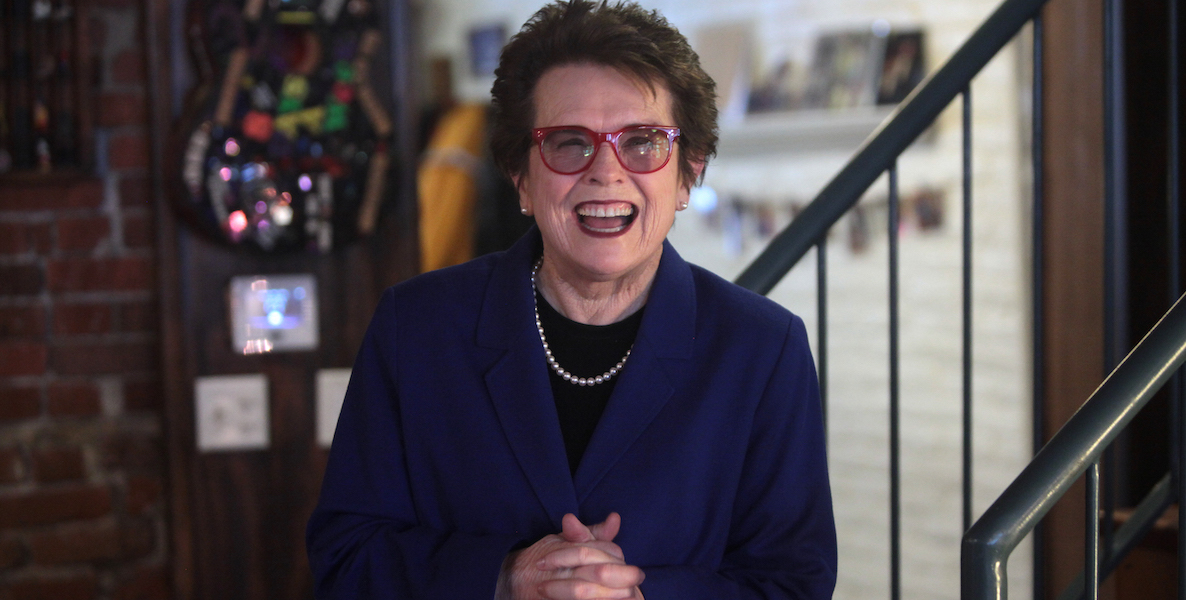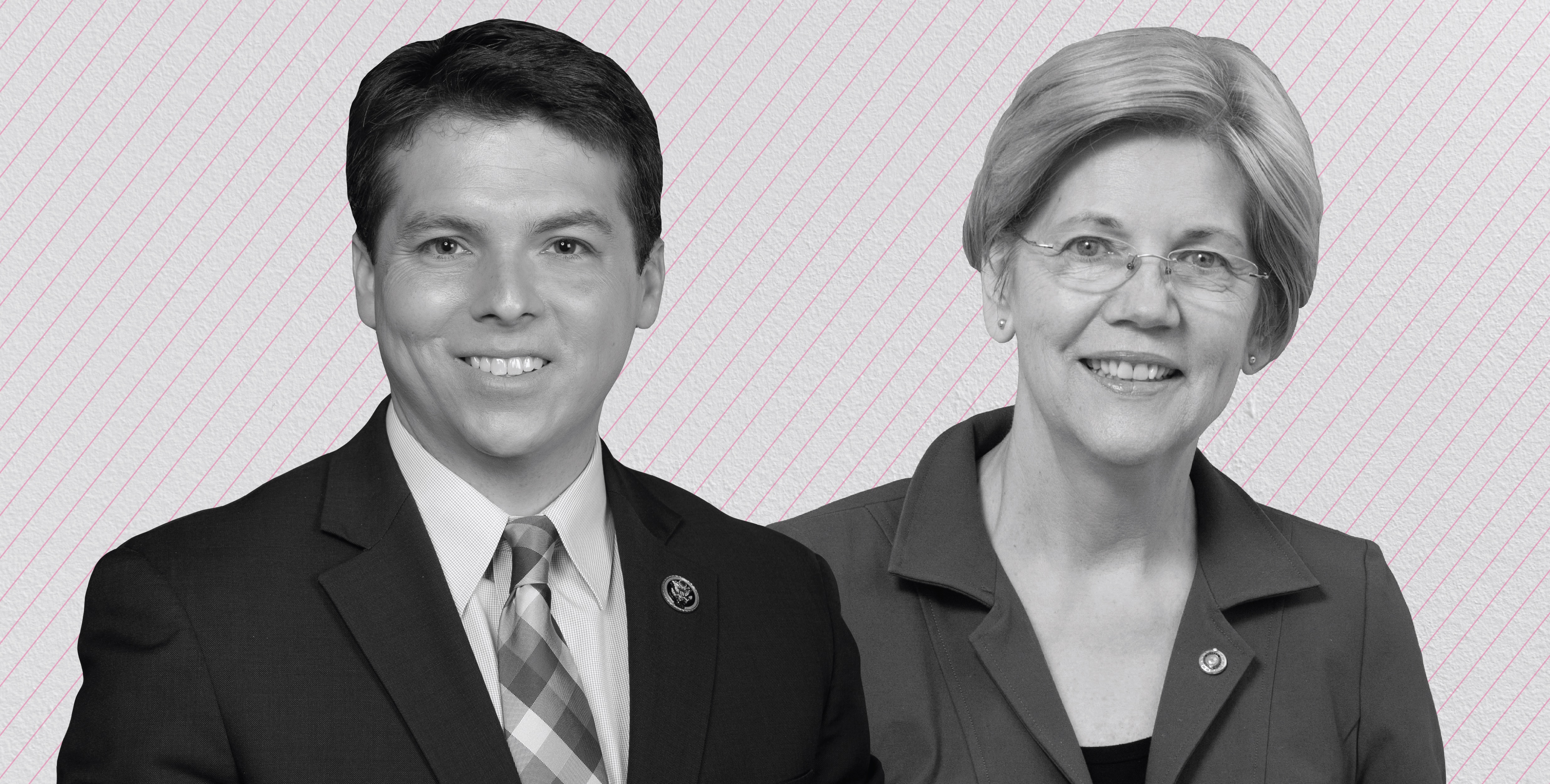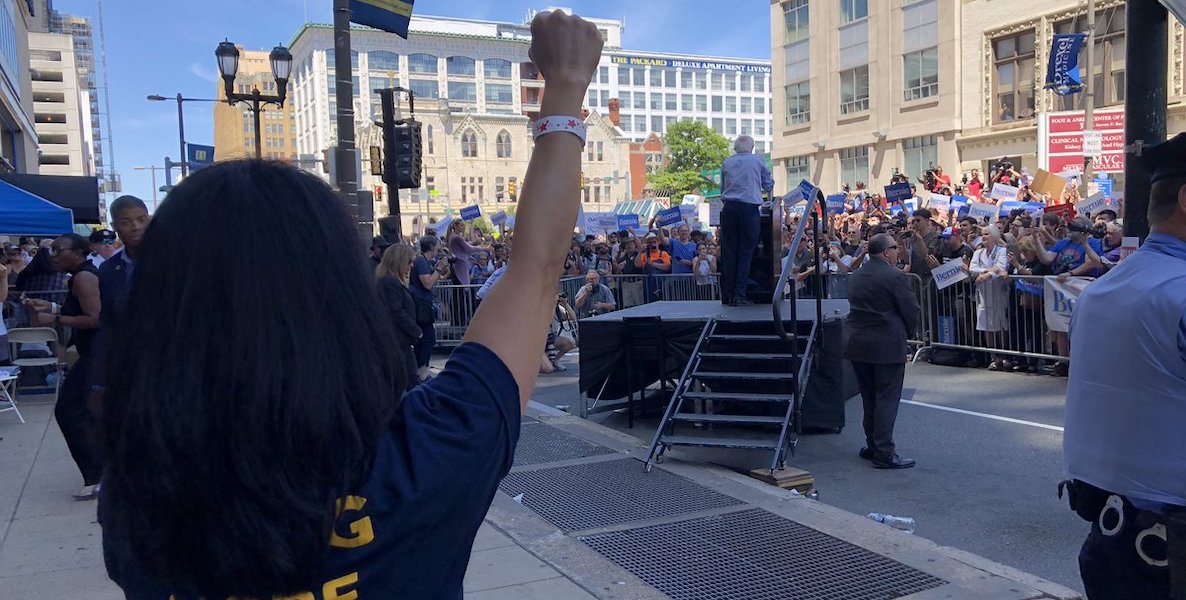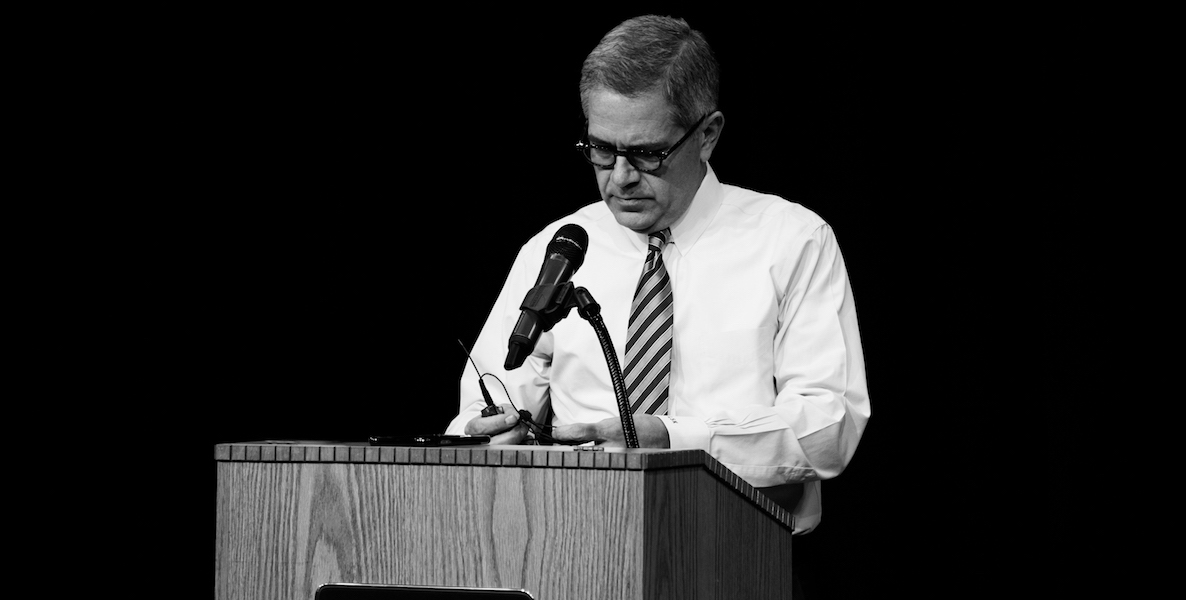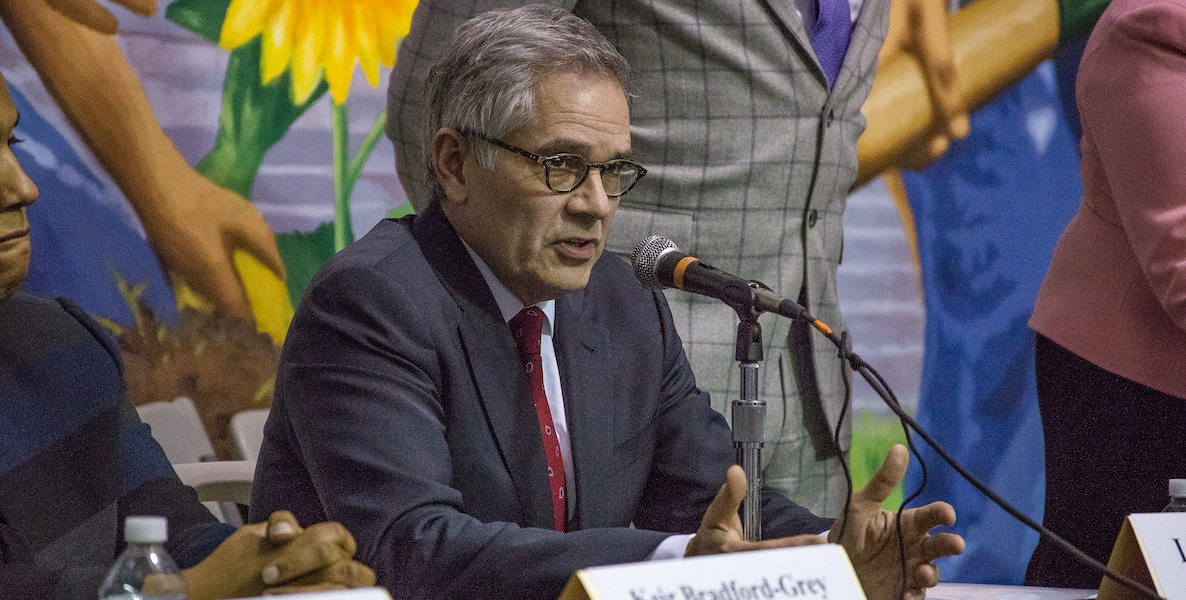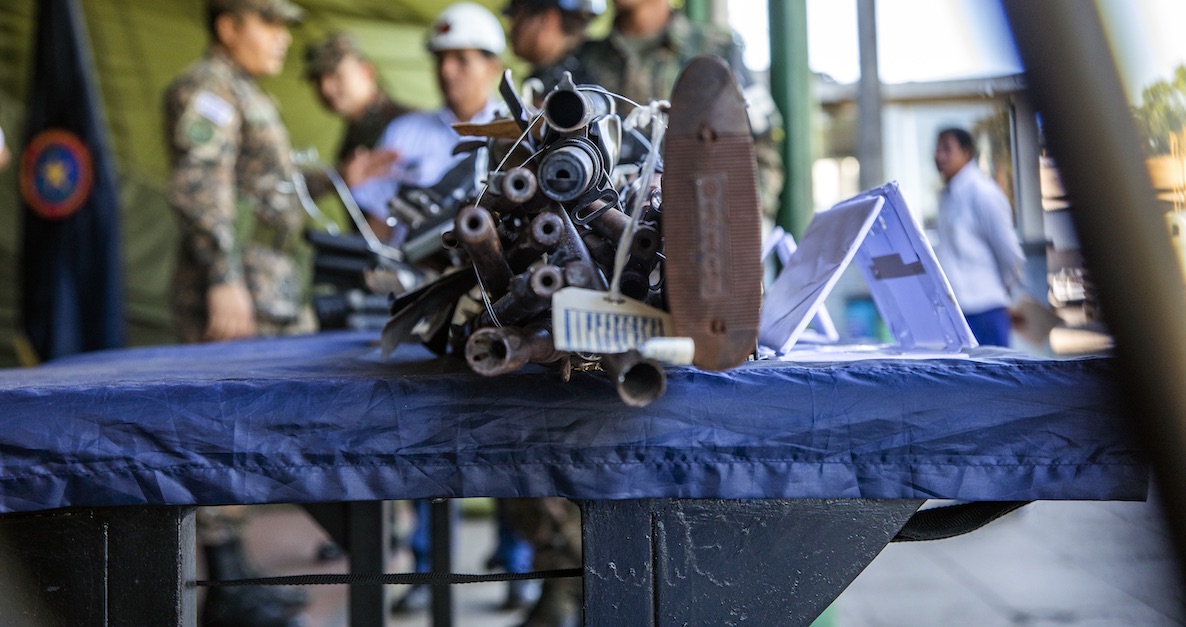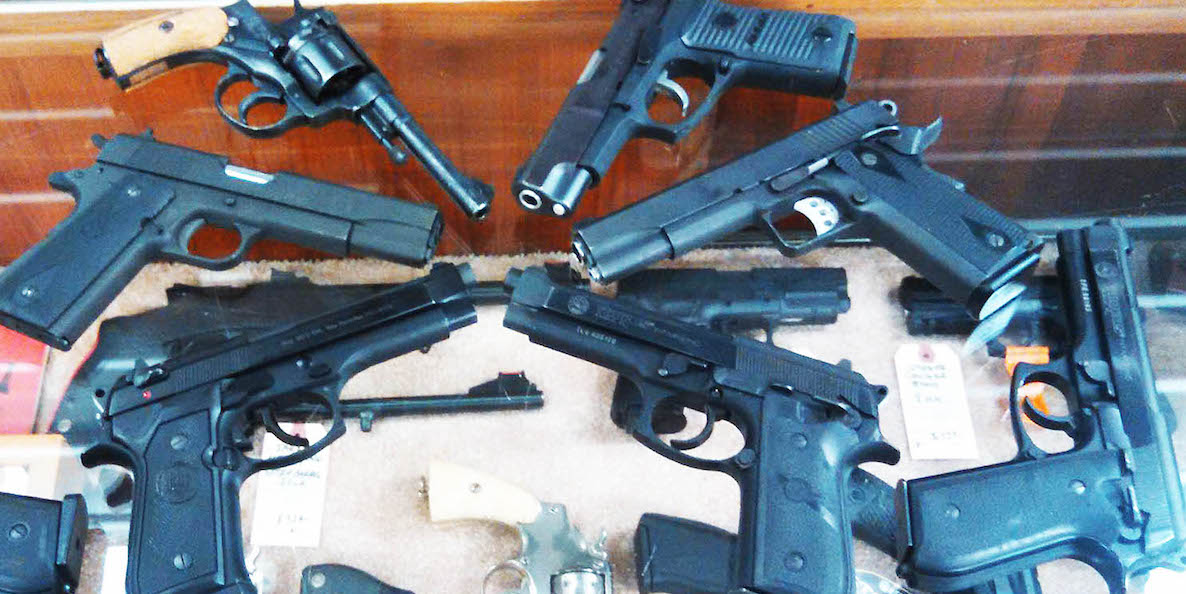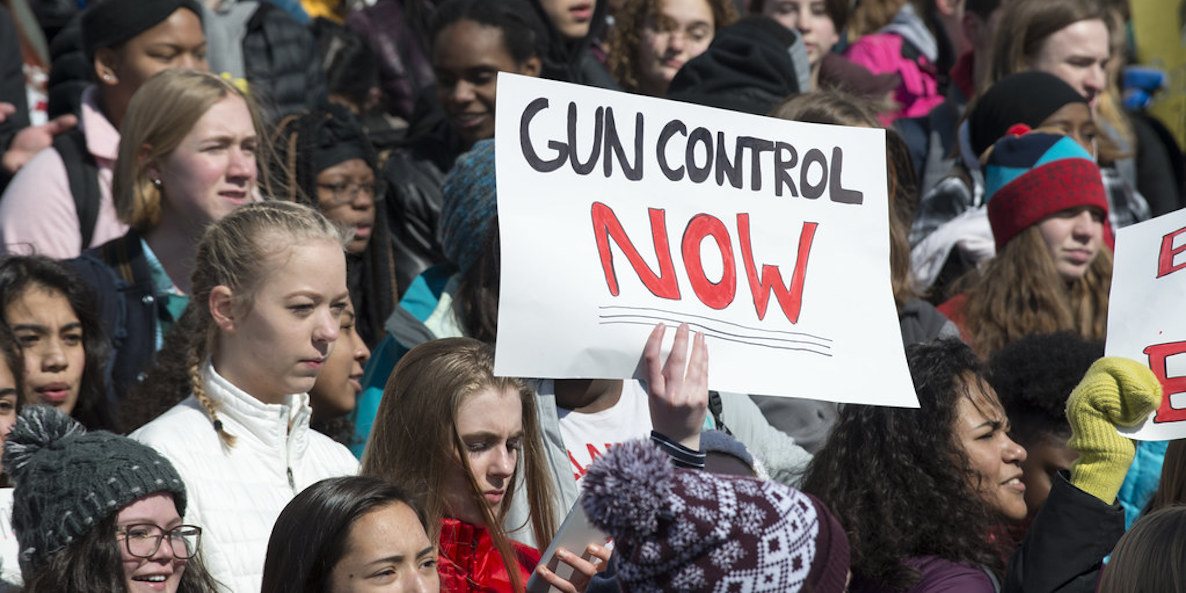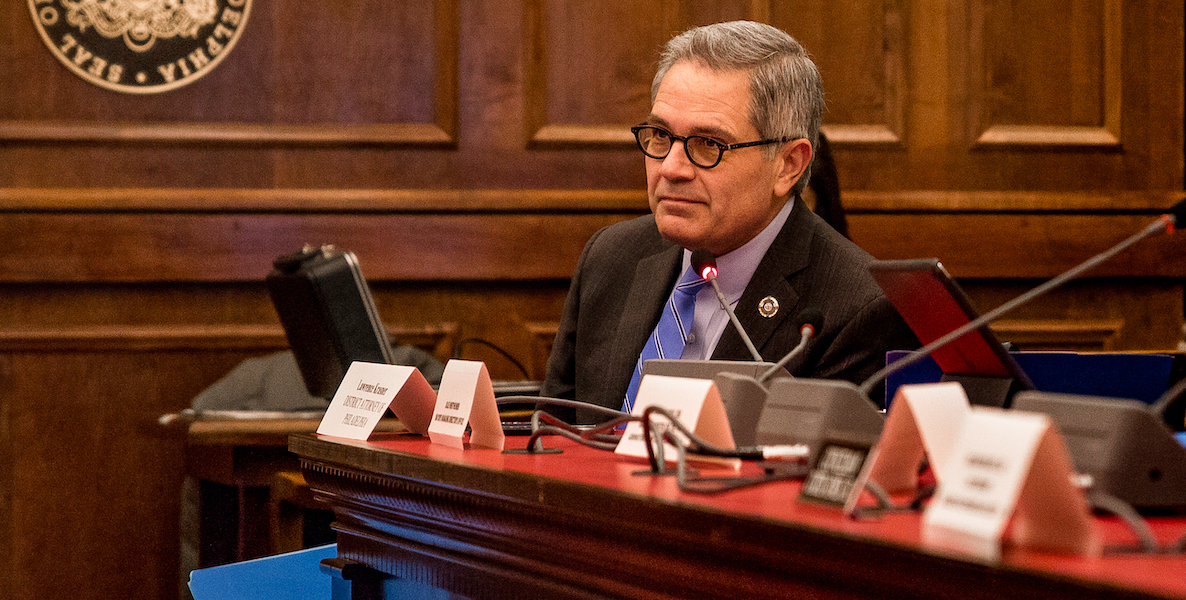You’d be forgiven if, after recent news coverage, you’ve been under the false impression that Attorney General Josh Shapiro—as an Inquirer headline intoned—might be seeking to undermine the criminal justice reforms of Larry Krasner by stripping “control over gun prosecutions” from the DA’s office.

Prefer the audio version of this story? Listen to this article in CitizenCast below:
Audio Player
Krasner, with help from breathless daily media coverage, had a lot to do with advancing that false narrative, lambasting the Attorney General for legislation quietly passed during state budget negotiations, ultimately signed into law by Gov. Wolf last month, that would give Shapiro’s office “concurrent jurisdiction” with Krasner’s when it came to prosecuting certain gun crimes. “District Attorney Krasner deserves a direct explanation from Attorney General Shapiro of how this targeted attack on his local authority came to be authored, passed without the apparent knowledge of most lawmakers, and signed into law by a Democratic governor who otherwise is supportive of efforts to dramatically reform our system of criminal justice,” Krasner’s spokeswoman said.
Krasner told the Inquirer’s Chris Brennan that he and his staff refer to former city prosecutors who have gone to work for Shapiro have “fled to Paraguay,” a reference to one of the countries that gave safe harbor to Nazis after World War II.
When Krasner took it even further, things got downright weird. He told the Inquirer’s Chris Brennan that he and his staff refer to prosecutors he’s fired or who have resigned as “war criminals” and that former city prosecutors who have gone to work for Shapiro have “fled to Paraguay,” a reference to one of the countries that gave safe harbor to Nazis after World War II. You mess with the ever-politically astute Shapiro at your peril, however.
Call your elected officialsDo Something
Shapiro, elected in 2016 with 3 million statewide votes, knows there’s no political payoff to punching down, so he’s remained silent in the face of Krasner’s broadsides. But he sent an email to his staff condemning the DA’s “hateful speech,” which naturally got picked up by the media. In short order, the Anti-Defamation League was admonishing Krasner, and the DA found himself where no elected official wants to be: In a defensive crouch, forced to point out that he never actually used the word “Nazi.”
Though Krasner’s Trump-like primal screaming and Shapiro’s cool non-response reply was fun to take in—the political version of NASCAR, all of us tuned in, just waiting for a crash—it was really just more noise. As so often happens, the coverage of this latest Krasner dust-up—again, Trump-like, who hasn’t the dude feuded with?—obscured the central facts and defaulted to a simplistic, self-aggrandizing narrative: Krasner’s. So: What really happened here? What should the overriding narrative have been? And what is the biggest question this latest controversy du jour raises, going forward?
Articles by Larry PlattRead More
First, a bit of background. For the past few months, a group of bipartisan state legislators had worked diligently to extend the success of the 13-year-old Gun Violence Task Force—a partnership between the AG and Philly DA’s office—statewide. The Gun Violence Task Force unlocks more resources, manpower and expertise in the fight against illegal guns. But in all but Philadelphia county, when it comes to gun crimes like large scale straw purchases and gun trafficking, local law enforcement has often been on its own.
So Democratic Representatives Jared Solomon, Jordan Harris, and Movita Johnson-Harrell, who formerly worked for Krasner, partnered with Republicans Martina White and Bryan Cutler to advance legislation that would extend to all counties in Pennsylvania the same “concurrent jurisdiction” that allows the AG and DA in Philly to collaborate and prosecute gun cases together or, presumably, separately. Kind of a no-brainer, particularly when bullets are whizzing through the air on a Nicetown street?
For those of us who agree with most of Krasner’s criminal justice reforms here’s the rub: He jeopardizes all of it, the whole agenda, by not exhibiting the ability to work with anyone else to make the system fairer and our streets safer.
“This was a bipartisan solution to the epidemic of gun violence,” says Solomon. “The idea was to use the resources of the Gun Violence Task Force as a model, and to use those increased resources to further collaboration and coordination between law enforcement to get more illegal guns off our streets.”
Not too controversial, huh? In fact, part of the rationale for such a move was that gun crime prosecution statewide had long been the outlier; when it comes to prosecuting drug crimes and human trafficking, for example, concurrent jurisdiction between the state’s AG office and local prosecutors had long been the order of the day. So these bipartisan legislators and Shapiro—who ran on extending concurrent jurisdiction statewide—were indeed behind the proposed legislation. But it blew up nonetheless, at the eleventh hour. Why? Two sources point to the same roadblock: “The NRA went nuts,” one told me.
About Larry Krasner and gun violenceRead Even More
So get this: The NRA, hooked on slippery slope fears of any reduction in armaments anywhere in America, helped to put the kibosh on a no-brainer piece of gun legislation, and—incredibly—opened the door for the most progressive of DAs to deflect from his own record on combatting crime and score some political points. That’s because of what happened next: The passage of an amendment limiting the application of concurrent jurisdiction to just Philadelphia. Of course, by virtue of the Gun Violence Task Force’s existence, concurrent jurisdiction already effectively exists here. (Besides, even if it didn’t, as in all other counties statewide, it’s arguable that the AG’s office could prosecute local crimes regardless of local cooperation under the Commonwealth Attorneys Act).
No matter. From a political perspective, the Philly-centric amendment made it easy for Krasner to paint a picture of an AG encroaching on his turf. An outspoken foe of the NRA, Krasner now owes the group a bouquet of roses.
Krasner is skilled at creating bogeymen and playing the victim, and that, aided by a complicit media, somehow made this a story about threats to criminal justice reform, when it should have been about a group of bipartisan legislators doing what we say we want our electeds to do: Work together to enact solutions.
Krasner and others—normally levelheaded Rep. Chris Rabb, for one—pander to progressives by suggesting that the concurrent jurisdiction amendment is a threat to criminal justice reform, as though Josh Shapiro were a modern-day Bull Connor. They should be forced to answer: In what scenario does Krasner not bring gun charges that would force Shapiro to big-foot him by filing state charges? Can you think of one? Neither can I. The Gun Violence Task Force—AG and DA working side by side— has existed for 13 years, after all, and not once has that happened.
Krasner is skilled at creating bogeymen and playing the victim, and that, aided by a complicit media, somehow made this a story about threats to criminal justice reform, when it should have been about a group of bipartisan legislators doing what we say we want our electeds to do: Work together to enact solutions.
And now it raises serious questions about the temperament and competence of our District Attorney. Just who will he work with in order to make Philadelphia safer? Add Shapiro to a long list of public servants who don’t measure up to Larry Krasner’s true believer standards. Go through the litany of feuds and disses, and you tell me if Larry Krasner has exhibited the political skill to make lasting change: He doesn’t show up in January when the Mayor announces his plan (such as it is) to fight gun violence; he and Commissioner Richard Ross engage in a weirdly passive aggressive war of words, with Ross singling out Krasner as the impediment to adopting the state-of-the-art focused deterrence crime fighting strategy here; he and U.S. Attorney Bill McSwain go at it seemingly every week, the sniping playing out in dueling press conferences and letters to the editor, culminating in yesterday’s stunning attack by McSwain on Krasner in the wake of the Nicetown shooting.
As if that weren’t enough, there’s always the (admittedly distasteful) FOP, with whom Krasner has feuded since the election night chants of “Fuck the police!” at his campaign headquarters that he did nothing to quell. Hell, not even other local DAs live up to Krasner’s exacting rectitude, as evidenced by his withdrawal from the Pennsylvania District Attorney’s Association, the first prosecutor to ever do so.
Like Trump, Krasner only seems to only be happy when he’s in a fight. Also like Trump, that makes him often come off as a big baby, which is what McSwain is getting at when he says his office will be providing “adult supervision” over Krasner. Krasner will no doubt respond by pointing out that McSwain works for Trump, and there we’ll go again, off on another political groundhog day: The same finger-pointing, the same name-calling, the same lack of results.
In what scenario does Krasner not bring gun charges that would force Shapiro to big-foot him by filing state charges? Can you think of one? Neither can I.
The problem is that such infantile pugilism carries with it real risk. For those of us who agree with most of Krasner’s criminal justice reforms—ending cash bail, decarcerating, reforming the scourge that is our probation and parole system—here’s the rub: He jeopardizes all of it, the whole agenda, by not exhibiting the ability to work with anyone else to make the system fairer and our streets safer. It’s telling that, across the country, Krasner’s class of reformist DAs have been treated to a rude awakening: that governing is more complicated, and harder, than outsider bomb-throwing.
In Florida, Aramis Ayala, the state attorney in Orange and Osceola counties, recently announced she wouldn’t seek a second term, after she refused to seek the death penalty in any cases, including a horrific cop shooting; her popularity plummeted after then-GOP Gov. Rick Scott removed capital murder cases from her office.
In Boston, DA Rachael Rollins announced 15 charges that her office would no longer prosecute, and Republican Governor Charlie Baker accused her of putting at risk efforts to take on the state’s opioid epidemic.
In Dallas, Texas, DA John Creuzot raised the threshold for prosecuting theft to $750 and announced his office would not prosecute thieves who stole due to poverty or hunger. “Reform is one thing,” wrote Texas Gov. Greg Abbott and Attorney General Ken Paxton, in response. “Actions that abandon the rule of law and that could promote lawlessness are altogether different…[Texas law] grants no power to criminal district attorneys to categorically rewrite the law.”
For Krasner and the other progressive DAs, being right just might not be enough. They now hold political positions that, by definition, require deft and discrete skills, like building coalitions and collaborating with stakeholders. While Krasner lashes out, the chalk outlines and body bags accumulate. When Krasner engages in juvenile feuds with McSwain, Ross, Shapiro and every other prosecutor in the state, he’s only making it harder on himself to bring the change he has promised.
Photo by Philadelphia City Council



